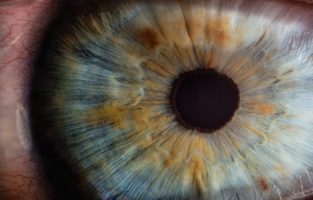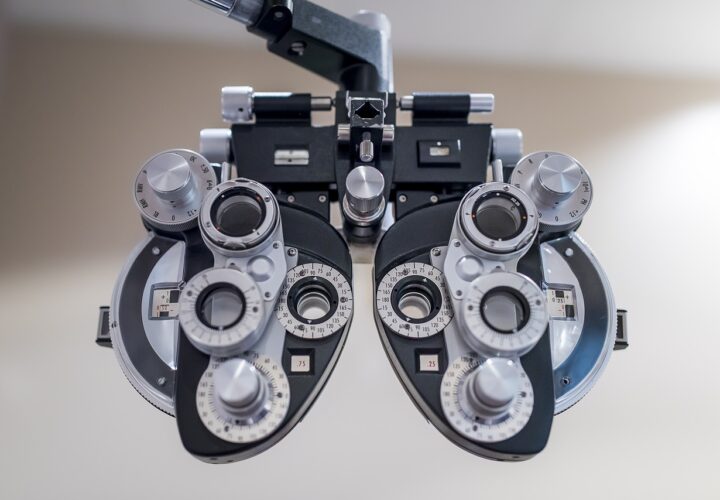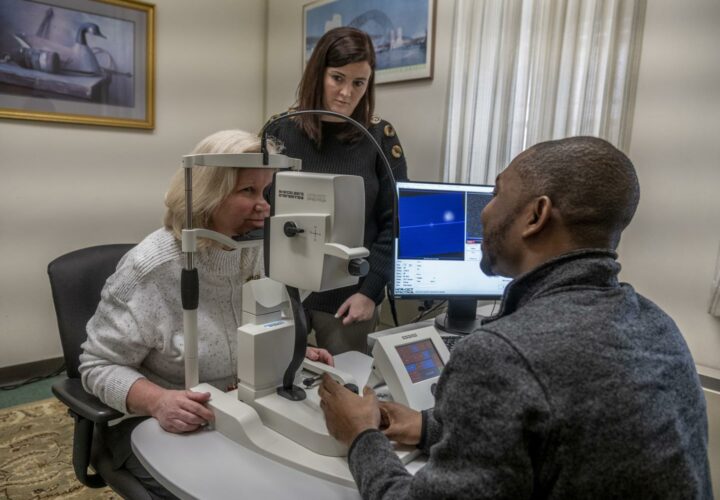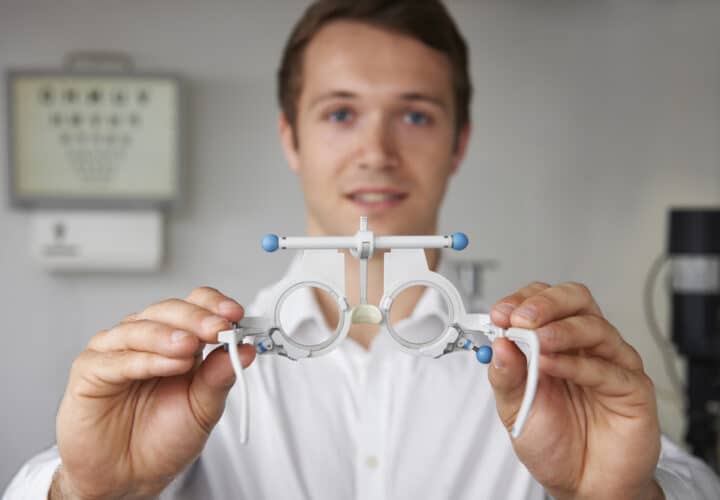The earlier we can diagnose Alzheimer’s, the better. This is why scientists are putting so much focus on the human eye.
While the exact link between the eye and Alzheimer’s disease is still occluded, scientists know that eye tests could hold the key to fast and affordable screening. But they eye is such a complex organ: So, where should they look?
Past studies have analyzed yellow spots on the eye, vision quality, how quickly a person’s pupils dilate, evidence of small changes in the eye’s blood vessels, and the presence of Alzheimer’s proteins in the eye fluid. Now, biomedical engineers at Duke University have devised a new imaging device that measures the retina’s thickness and texture. Changes in the size and shape of the retina at the back of the eye, they say, are the newest frontier in research for how the eye can reveal Alzheimer’s biomarkers.
“Previous research has seen a thinning of the retina in Alzheimer’s patients, but by adding a light-scattering technique to the measurement, we’ve found that the retinal nerve fiber layer is also rougher and more disordered,” Duke professor of biomedical engineering of Adam Wax said. “Our hope is that we can use this insight to create an easy and cheap screening device that wouldn’t only be available at your doctor’s office, but at places like your local pharmacy as well.”
Today, Alzheimer’s diagnoses are only made after a person begins to display symptoms of cognitive decline. Even then, the only way to determine Alzheimer’s with certainty involves the expense of MRIs, PET scans, or post-mortem diagnosis with an autopsy.
The ability to use biomarkers as early warning signs could help doctors slow or even stop (for the duration of one’s life) the onset of the disease through early interventions (from drugs to exercise and other lifestyle changes) giving people with high Alzheimer’s risk a greatly improved quality of life. And though diagnosis and treatment only begins when a person has symptoms — which typically occur after the age of 65 — some tests have been effective at screening risk for Alzheimer’s in people as young as 40.
In a 2018 study, researchers even concluded that declining vision may be driving cognitive decline and they speculated that protecting vision could help preserve cognition.
“The retina can provide easy access to the brain, and its thinning can be indicative of a decrease in the amount of neural tissue, which can mean that Alzheimer’s is present,” Wax said.
Other diseases such as glaucoma and Parkinson’s disease, however, can also cause a thinning of the retina, which adds a layer of complexity, but more research is underway.
“We’re excited because this research shows a new way of using low-cost OCT technologies outside of simply screening for traditional retinal diseases,” Wax said. “If we can use these devices as a window into early signs of neurodegenerative diseases, maybe we can help people get into an early intervention treatment program before it’s too late.”
Why Is Retinal Testing Effective for Alzheimer’s?
Earlier this year, Dr. Peter Snyder, a professor of Biomedical Sciences at the University of Rhode Island, joined Being Patient for a BrainTalk about his research into retinal scanning technology that could detect signs of Alzheimer’s as early as 20 years before symptoms appear, and why the eye is a good place to start when looking for signs of dementia.
Windows to the Brain: The Potential Behind Retinal Testing for Alzheimer’s
Developing New Eye Tests for Alzheimer’s
In an earlier BrainTalk in 2019, Professor Peter van Wijngaarden, deputy director of the Center for Eye Research in Australia (CERA), shared with Being Patient the aims of the center’s research, the technology’s potential for early diagnosis and the impact it could have on future research.
Windows to the Brain: Using Retinal Scans for Early Alzheimer’s Diagnosis





